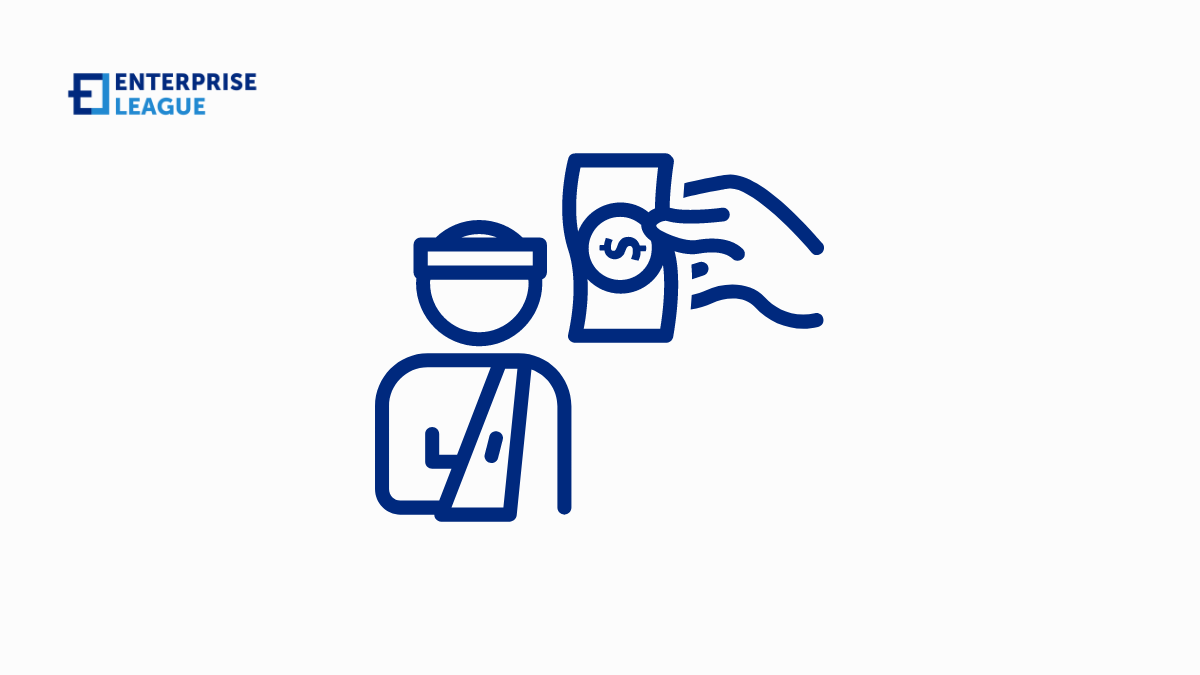Could your company be sued if a customer is injured on your premises?
February 29, 2024

Have you ever considered the can of worms that might open if a customer has an accident while on your premises? Not only could you be responsible for someone’s injury. You could also face legal repercussions. The short answer to “Could your company be sued if a customer is injured on your premises?” is yes.
The ins and outs of premises liability
However, just because someone files a lawsuit, it doesn’t always necessarily mean you’re at fault. The law will usually peek into whether you were negligent in maintaining a safe environment for your patrons to discern who was responsible for an accident.
So, keep an eagle eye out for potential issues, fix them ASAP, and document everything – because when legal eagles swoop down, showing that you’ve done your homework could be what keeps your company bank account from getting schooled in damages.
Safety for preventing accidents is just as important – if not more so – than the security of your premises.
Sidestepping the slippery slope of negligence
Keeping detailed records can be a game-changer. Log those inspections and repairs because they’re like collecting power-ups in a video game; they boost your defence big time if someone cries foul.
And hey, training your staff to spot trouble isn’t just smart—it’s essential. It shows you’re serious about safety and not just crossing your fingers hoping nothing goes south. Because when push comes to shove—or rather slip comes to sue—being prepared is key!
Insurance matters
Proper insurance isn’t just nice to have—it’s your financial guard dog. General commercial liability insurance is the gold standard here.
So, whatever you do, don’t overlook obtaining the right insurance.
Risk management and training is vital
Let’s talk about risk management. Think routine check-ups on all the nitty-gritty stuff—lighting, staircases, floors.
And training your team on preventing accidents – as well as what to do when accidents do occur – is crucial.
Your incident response strategy
Don’t just cross your fingers and hope for the best—having a rock-solid action plan is essential. If an injury does go down in your establishment, it’s like defusing a bomb; you have got to follow the right steps methodically to limit the damage. First aid kits? Check. Incident logs? Absolutely.
Your crew should be as ready to respond to accidents as a pit stop team is at changing tyres. Quick, efficient, no messing around. And communication lines must stay as clear as crystal – think walkie-talkies on construction sites level of clarity here.
Post-incident, don’t be that person playing hide-and-seek with the details—it won’t end well when lawyers start digging in your sandbox. Instead, report timely to your insurance folks and serve up all those meticulous records you’ve been keeping. It’ll show that you’re on top of things—not under them.
When to seek counsel
If you are negligent, those who are injured on your company premises could sue you – with the help of an experienced personal injury law firm like Dolman Law Group.
So, it’s just as important that you have a go-to lawyer when disaster strikes. After all, even the savviest business guru wouldn’t go toe-to-toe with legal titans without a seasoned gladiator by their side—an attorney.
The moment trouble knocks on your door, ringing up a lawyer who knows their way around premises liability is move number one.
Think of your attorney as a Sherpa guiding you up Mount Lawsuit. They’re there to offer sage advice, pore over the fine print of your policies, and help you chisel out a rock-solid defence strategy.
Also, touch base regularly with your legal eagle to stay sharp on laws and regulations that could impact your biz. That way, when push comes to shove in the courtroom arena, you’re prepped and ready for battle.
The aftermath of an injury claim
Then, grab that incident report and fill it with all the relevant details. Also, snap photos and gather witness statements. Notify your insurance carrier right away because they need to be in on this from square one.
Throughout this process, maintain professionalism but hold off on admitting fault or making offers; your legal team should take point on negotiations. This isn’t about being cold—it’s about navigating tricky waters without sinking your own ship.
More must-read stories from Enterprise League:
- Learn about how micromanaging can hurt your productivity.
- Entrepreneurs over 70 that have defiled old age.
- Common hiring mistakes that employers make and how to prevent them.
- The best apps for entrepreneurs that will help you achieve your goals.
- Are you aware of the negative effects that social media has on the workspace?
Related Articles
14 unique business ideas with drones that guarantee a profit (2024)
If you are one of those that loves tech gadgets, we’ve made a list of 14 business ideas with drones that will inspire you to start a business in this field.
How mortgage workflow automation enhances loan officer efficiency
Embracing automation and its transformative impact allows loan officers to prioritize developing connections with borrowers and enhancing customer satisfaction.
26 best electrical equipment companies in 2024
Electrical equipment companies, in general, are companies working with products that produce, distribute, or use electrical energy.
14 unique business ideas with drones that guarantee a profit (2024)
If you are one of those that loves tech gadgets, we’ve made a list of 14 business ideas with drones that will inspire you to start a business in this field.
How mortgage workflow automation enhances loan officer efficiency
Embracing automation and its transformative impact allows loan officers to prioritize developing connections with borrowers and enhancing customer satisfaction.





